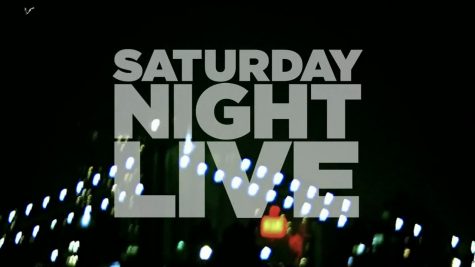SNL and Bipartisanship
SNL has undoubtedly become a staple of American television. In its forty two years on air, it has created memorable one liners and quirky characters. But perhaps the most relevant, albeit controversial, aspects of the program are the political skits, more specifically the cold opens. In the February 11th, episode, Melissa McCarthy tore apart Press Secretary Sean Spicer with her shockingly recognizable impersonation of him. Impressions of Kellyanne Conway by Kate McKinnon and Donald Trump by Alec Baldwin followed suit.But when one looks at these pattern of these impersonations, most of seem aimed at the Republican Party, with very few jokes about the Democrats (except for one of Elizabeth Warren during the popular Weekend Update segment of the show). Now, this may be due to the fact that most news we hear nowadays mainly focuses on the Republican Party. This targeting of the Republican Party was also a far too common occurrence during the 2016 Presidential Election to see SNL mock one political party over the other. Given that 10.3 million people watch SNL every week(Forbes). But, how many people’s opinions are influenced by these biting portrayals?
The answer, shockingly, is very little. According to a recent survey conducted with 25 students around the Berkeley Carroll High school student body, 68.8 percent say that their opinions have not been influenced by SNL. Another interesting statistic is, 18.8 percent of the people surveyed said that SNL only reaffirmed their political beliefs, not radically shifted them across party lines. According to one student, “I find SNL entertaining. It makes me actually laugh at Trump and his cabinet members. Usually, whenever I hear about them and what they’ve done on the news I get depressed. SNL is a good way to get away from politics and just have a laugh.” This seemed to be a recurring theme throughout the survey. SNL not only has sharp and poignant caricatures of certain events in the news, but it also gives people a welcome break from serious and often unsettling news stories that permeate through the society we live in. Coincidently, this is also a topic that SNL covered in their most recent episode, where Donald Trump (Alec Baldwin) goes to the “People’s Court” after his travel ban is cut down by a Federal Judge. In this sketch, the People’s Court judge Marilyn Milian, played by the hilarious Cecily Strong, utters the phrase, “all I want is one day without a CNN alert that scares the hell out of me.”
However, the belief that political opinions can’t be changed by a simple sketch show doesn’t apply to SNL’s impact on the election. In the aforementioned survey, 55.6 percent of people said that while SNL doesn’t have the ability to change individual opinions, it does have the ability to influence the election. Many people believe that this is due in part to the fact that SNL finds flaws in politicians. In addition to this, people say that SNL may make people think differently about aspects of social or economic problems that plague the United States. One student thinks, “Every news/media source influences the election.” while another believes that t “While it is a satirical network it can still persuade viewers in the way it presents its information.”
Given that many people share the belief that SNL has the ability to influence the election, it stands to reason that people think SNL has an obligation to be bipartisan. However, the results of the survey seem to defy logic. According to the survey, a whopping 88.9 percent of the BC community doesn’t believe that SNL should be bipartisan. To quote one 9th grader, “SNL is a comedy/satire show, it does not have any obligation to respect both parties or attempt to make some kind of agreement between both parties, unless that’s the kind of skit they want to do. It’s like saying that a stand-up comic is obligated to tell jokes that bring the parties to agreement.”
Looking at the responses, it’s clear to see that there is a large disconnect between comedy and news. The question that we, as productive members of society, must ask ourselves is, should we hold a sketch comedy show that captivates millions every Saturday to the same standards that we hold real news to?
